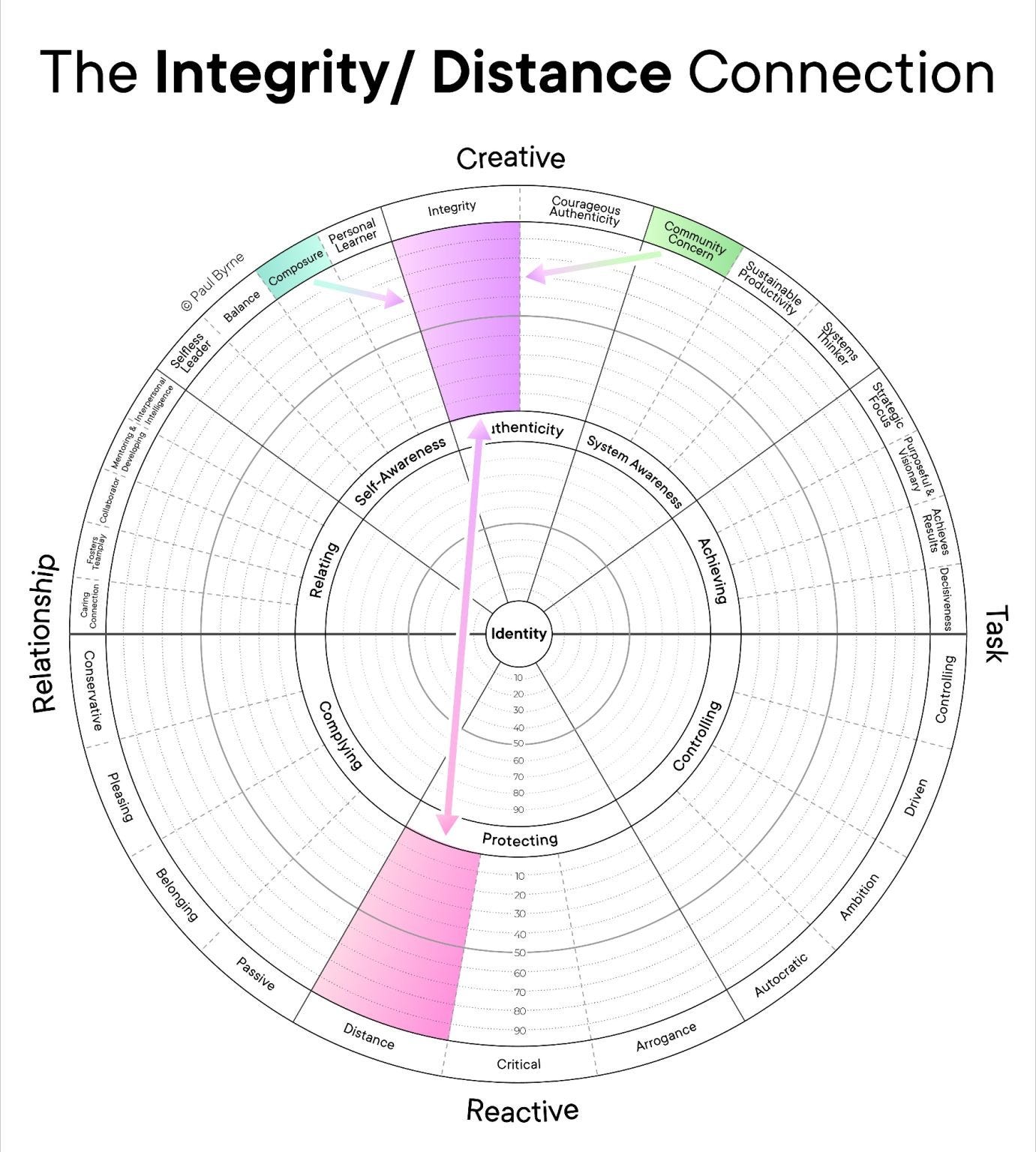The Integrity/Distance Connection
One of the most challenging data points for leaders to process in the Leadership Circle Profile is a low score in Integrity.
Because most leaders see themselves as ethical, honest, and trustworthy, a low Integrity score can feel confusing—even insulting. But in the Leadership Circle, Integrity isn’t a measure of moral character. It sits within the Authenticity dimension and points to how consistently a leader is seen as “walking their talk”—particularly under pressure.
To score high in Integrity, others need to:
Understand what you stand for—your core values and principles.
See you consistently act in alignment with those values, especially when it’s hard.
So when I see a low Integrity score, one of the first things I check for is a high score in Distance. And more often than not, the connection is there.
Distance is a protective strategy—an unconscious move to keep others at arm’s length. It allows a leader to stay safe, stay composed, and avoid getting overwhelmed by emotional intensity. For many leaders, especially in fast-moving or high-stakes environments, Distance can feel like a strength. And in moderation, it is.
But there’s a cost. Distance makes it harder for others to really see you—your beliefs, your passion, your personal stake in the work. If people can’t see what matters to you, they can’t recognize when you’re acting from principle. Your integrity is hidden behind a screen.
One way to begin shifting this pattern is by experimenting with other creative competencies like Community Concern and Composure.
Community Concern invites you to lead from purpose and shared values. It’s about expressing what matters to you in ways that connect to the broader mission—bringing more of your heart into the room.
Composure supports you in staying grounded and steady under pressure, without retreating behind Distance. It’s not about withdrawing; it’s about standing present in challenge and showing up with clarity and conviction.
Moving from Distance to Integrity isn’t about revealing everything. It’s about letting people see enough of you—your values, your care, your choices—to trust that your words and actions are aligned.
That’s what builds real credibility. And that’s what makes leadership feel personal, human, and powerful.



